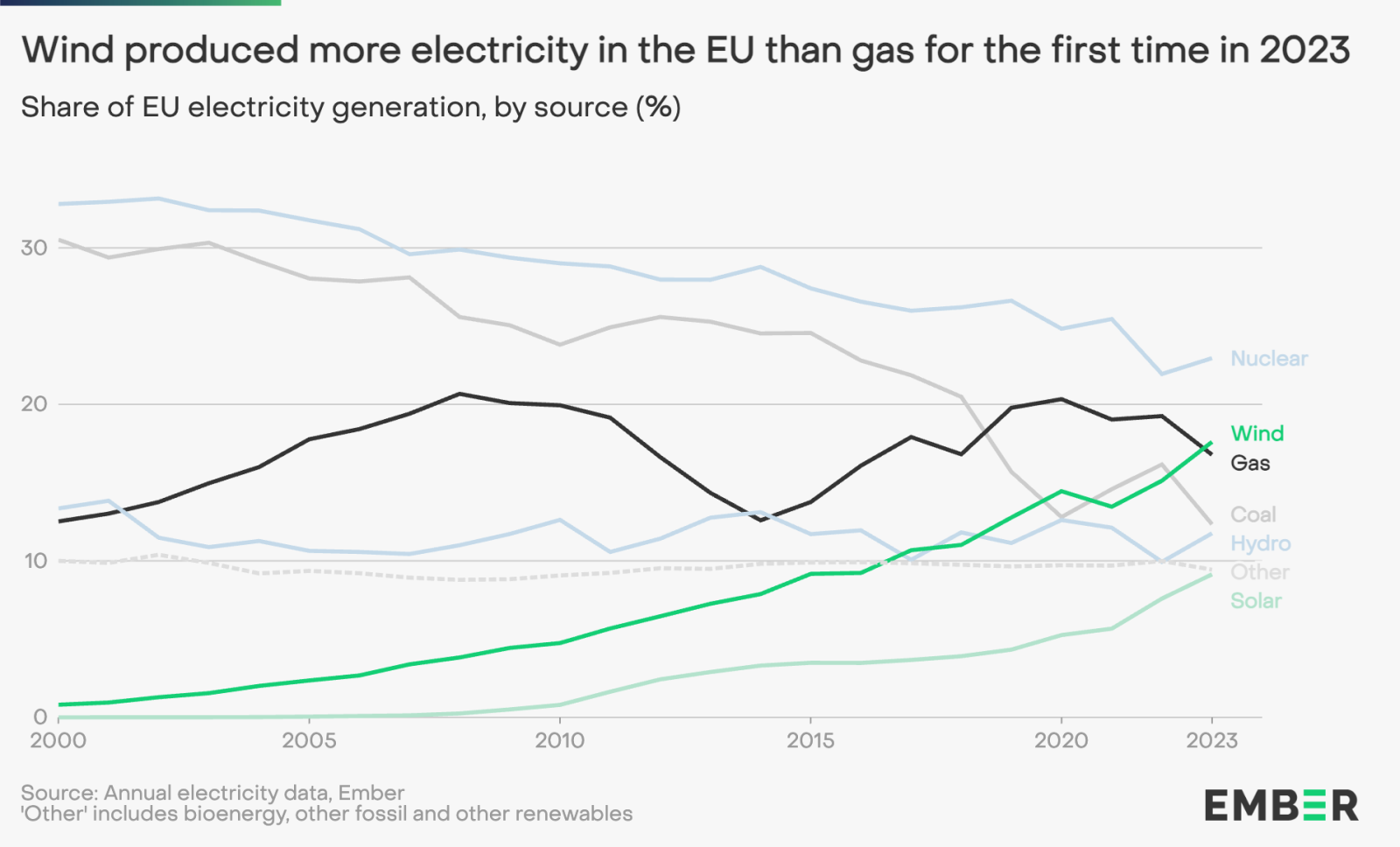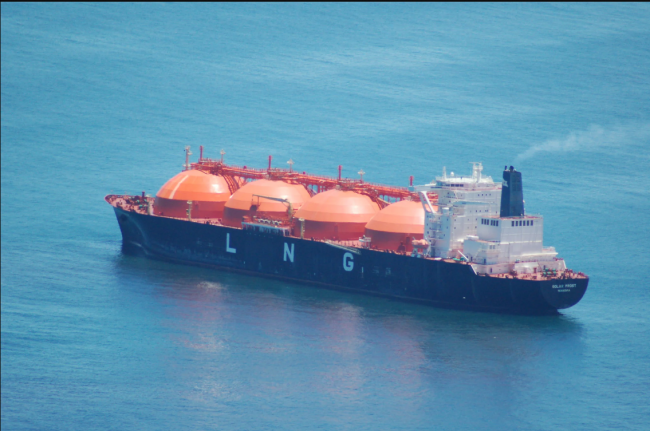Recent energy figures from Europe further weaken Canada’s justification for developing LNG to export it abroad, says a new report.
Released Tuesday by energy think tank Ember, the report found fossil fuel electricity generation levels in Europe last year reached a record low. Wind power hit 18 per cent of the energy mix, beating gas power for the first time, at 17 per cent. Overall, renewable energy made up 44 per cent of electricity generation. On the same day as the report’s release, the European Commission called for a 90 per cent reduction of planet-warming greenhouse gases in the European Union (EU) by 2040.
These statistics, combined with United States President Joe Biden’s announcement of a pause on LNG exports, are further signals that Canada should back away from the fossil fuel for good, said Moe Qureshi, manager of climate solutions with the Conservation Council of New Brunswick.

The federal government has pointed to Canadian LNG as a solution to European energy insecurity. But briefing materials obtained by Canada’s National Observer in 2022 show that Canada was pitching LNG to European gas markets before Russia invaded Ukraine.
Following the invasion, the House of Commons and social media were flooded with claims from politicians and the fossil fuel industry that Canadian fossil fuels need to step in to replace European imports from Russia.
Released Tuesday by energy think tank #Ember, the report found that 2023 saw #fossil fuel #electricity generation levels in Europe reach a record low, highlighting the lack of a European market for Canadian #LNG. - Twitter
"The energy crisis and Russia’s invasion of Ukraine did not lead to coal and gas resurgence — far from it,” said Sarah Brown, Ember’s Europe program director. As the phase-out of coal nears, “gas will be next to enter terminal decline,” she noted.
It’s irresponsible for Canada to try to build an LNG export market instead of focusing on building up renewables at home, said Qureshi.
“There is no justification for LNG expansion in a time where energy security is such a major topic...I don't understand why Canada's energy security is not being prioritized. Why aren't we investing in more Canadian wind, Canadian solar, Canadian batteries to back up our grid?” said Qureshi.
“What is this weird obsession with developing more LNG terminals for international markets? They're not even being prioritized for local markets here.”
Canada’s first LNG export facility is nearing completion, and once in operation, will be the largest greenhouse gas emitter in its home province of British Columbia. However, other LNG export projects have fizzled over recent years.
In 2023, both the Goldboro LNG project in Nova Scotia and Repsol’s plans for an LNG export terminal in New Brunswick were scrapped. A Repsol spokesperson called the project “uneconomical” at the time, building on evidence that LNG from Canada’s East Coast is too expensive to compete with other sources.
When asked about the business case for Canadian LNG, Natural Resources Canada said if the fossil fuel is to "play any role in the future" as we work towards reaching net zero by 2050, it will mean "it must be pursued in a manner that is aligned with Canada’s and the world’s climate commitments." The department said upstream emissions from extraction, notably methane emissions, must be reduced; that LNG facilities should electrify; and that LNG being shipped abroad should only be used to replace higher emitting energy sources such as coal.
"Ultimately, investment decisions in the LNG sector will be made by proponents based on their ability to comply with federal and provincial regulatory standards, and to be competitive within the global market," said spokesperson Shireen Ali, who noted global demand for oil and gas is set to peak in this decade before beginning to decline.
The report from Ember also noted the International Energy Agency has found the EU’s power sector must reach net zero by 2035 for the region to reach net-zero emissions by 2050. In Tuesday’s report, Ember said it found “that this means unabated gas must be reduced to less than 5 per cent of the EU’s generation by 2035.” Fossil fuels are generally considered abated when their emissions are captured and stored.
The report highlights progress specifically in reducing natural gas use, which hit a historic low at 15 per cent less than 2022.
While natural gas is often called a “bridge fuel” and is presented as a cleaner fossil fuel than oil or coal, research has found that the methane leaks that occur during extraction and transportation of natural gas could make the fossil fuel worse than burning coal. Methane has 84 to 87 times more warming potential over 20 years than carbon dioxide, making it especially relevant in achieving short-term emissions reduction goals.
According to research from Cornell University published in October, when LNG is shipped overseas, it can produce between 27 and 50 per cent more emissions than coal.
“When I think of the story, it's about how we have officially started this transition. We have officially moved away from fossil fuels,” said Qureshi, about Ember’s analysis.
“LNG is dropping, people are now realizing there are alternative solutions.”
- With files from John Woodside

